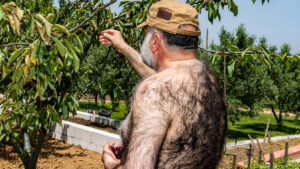The farm industry is trying to convince itself that ‘fake meat’ is not a problem

Pic: metamorworks / iStock / Getty Images Plus via Getty Images
Vegans are weird and oat milk is water mixed with oat juices.
Together they present a possible $3.1bn — that’s right, billion — opportunity in “alternative proteins” or foods that act as a substitute for animal-sourced protein, says AgriFutures Australia in a new report.
This includes plant-sourced meat, dairy and egg substitutes, cultured or cellular meat, insects and algae.
The agriculture industry is desperately trying to convince its own and those outside the sector that the rise of fake meat and a shift towards more plant-based diets is not a risk.
Specifically, the report The Changing Landscape of Protein Production says plant and alternative proteins “will not present a material threat to the viability of animal agriculture by 2030”.
It suggests there will be a $19.9bn extra opportunity in the market for Australian protein by 2030: $8.9bn for animal proteins, $7bn for traditional plant-sourced proteins, and $3.1bn for alternative protein products.
These figures are based on rising demand for animal protein in Asian countries, the need to feed growing populations, feed supply for an increasing animal production sector, and the niche market of value-added hybrid or alternative protein products.
“The shift towards alternative proteins has gathered momentum over the past 18 months, with large-scale food retailers promoting plant-sourced meat to mainstream consumers,” AgriFutures Australia managing director John Harvey wrote in the report.
“The impact of growth in vegetarian, veganism and flexitarian consumer segments is often debated in industry circles.”
Australian Farm Institute executive director Richard Heath said there’s been a lot of hype around the potential of so-called “fake meat” as a disruptor to the livestock industry, but the industry-commissioned research shows the emerging market for alternative proteins should not be seen as a threat to existing production systems, but as a means of diversifying choices.
“New demand for animal protein from a growing global population will outweigh any additional market share that alternative proteins may gain in the next decade,” Heath said.
Plant-based proteins and fake meat has become one of the industries du jour and a number of companies have jumped on the trend.
Roots Sustainable Agricultural Technologies (ASX:ROO) is getting into the plant-based meat craze, applying tech used to grow cannabis to growing high-protein beans and peas.
It is testing the effect of its growing technology in a program out of its Israel development hub.
Jatenergy (ASX:JAT), which has been in multiple industries since its 2008 listing, has partnered with Sydney-based food processor Oppenheimer to develop plant-based meats. Both companies want to focus specifically on the Chinese and Asian markets.
Outside the large small cap market for dairy companies, particularly those operating in the infant formula space which is protected from the threat of plant-based milks on the grounds that they are dangerous for babies, one company is beating the fake meat industry using a different method.
Wide Open Agriculture (ASX:WOA) is selling meat that is grown without chemicals on “regenerated” land, or land that is being farmed in ways that don’t degrade soils and watercourses.
They hope to capitalise on demand for real meat that has a lower impact on the environment.
UNLOCK INSIGHTS
Discover the untold stories of emerging ASX stocks.
Daily news and expert analysis, it's free to subscribe.
By proceeding, you confirm you understand that we handle personal information in accordance with our Privacy Policy.








